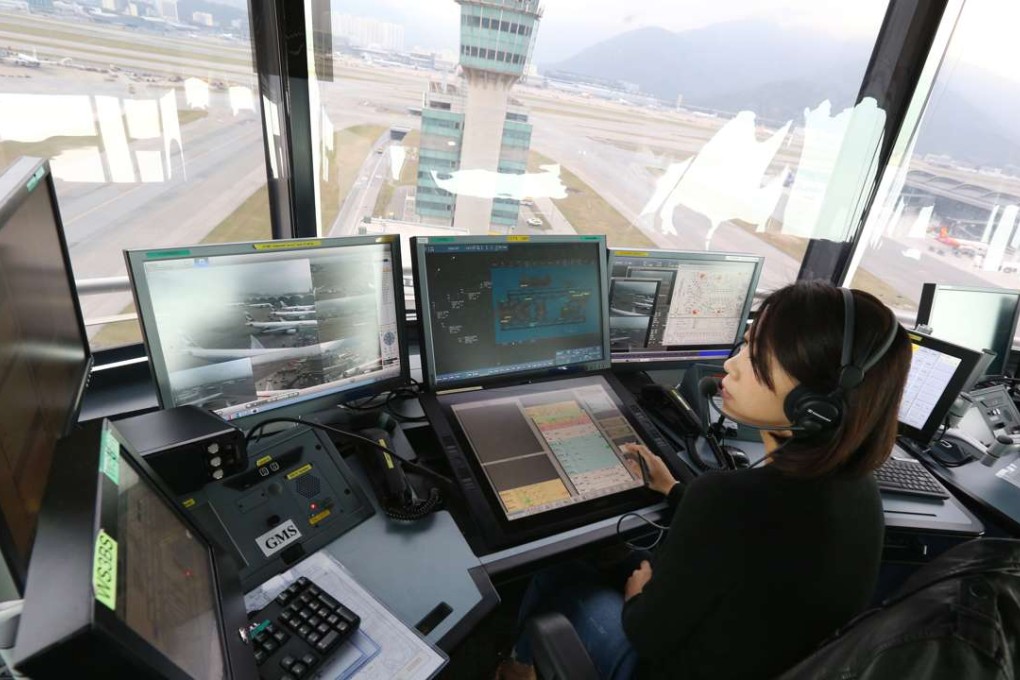Faulty new HK$1.56 billion air traffic control system stalls flights at Hong Kong airport
Civil aviation service staff warned over leaking information following lawmaker’s criticisms

Flights departing Hong Kong’s International Airport were halted for 15 minutes Tuesday after what was the most significant fault to hit the Civil Aviation Department’s new, HK$1.56 billion flight navigation technology.
In a rare display of transparency from the department, and following weeks of controversy over leaked information, director of civil aviation Simon Li Tin-chiu said a data processor had caused the computerised air traffic system to fail to display flight details for some 26 seconds.
The aviation regulator chief said preliminary investigations had shown the system failed temporarily while it was backing up flight data information.
The department last week said radar technology hardware, which supplied information to air traffic control (ATC), was causing issues for the newly-installed Raytheon Auto Trac III system.
Raytheon has been asked to find a fix for the system within 48 hours, and senior executives from the US firm have been asked to meet the civil aviation chief to explain the incident and other teething issues. The department said it is seeking solutions to make the system more reliable.